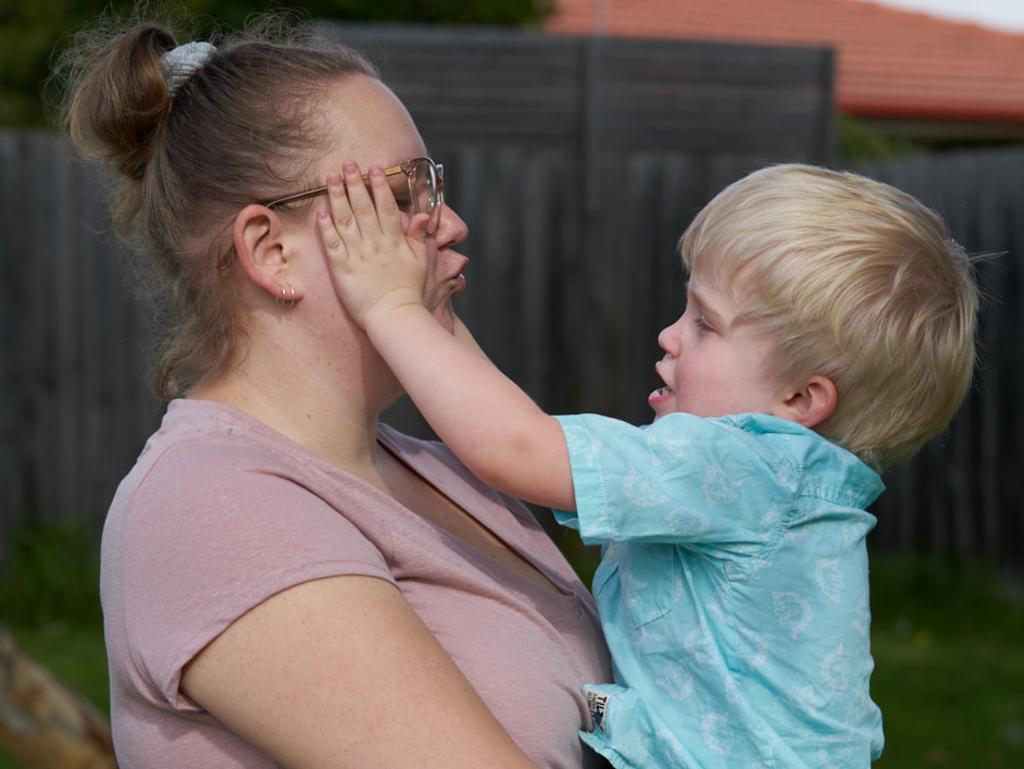‘Big shock to the system’: Mum’s message to Aussie millennial women
We all learned a lot in 2020 but this millennial woman is making sure others like her don’t suffer the same fate.

Jess Davies can’t even blame the pandemic for what happened.
But 2020 up-ended the world for everyone and now the 34-year-old wants to make sure things don’t get any worse – for millennials and women in particular.
Last year Medicare claims for women’s optometric consultations were down 8 per cent on the prior year, meaning there were 407,969 fewer appointments than in 2019.
Research from Specsavers found 51 per cent of women put off making an appointment for a month or longer after receiving a reminder in the last 12 months.
Millennial women were the biggest culprits, with 87 per cent cancelling or postponing appointments.
Ms Davies was one of those women, well before the pandemic hit, putting her own health and needs on the back seat when she got pregnant.
Having had diabetes since she was a child, the Mornington Peninsula resident had been having eye checks at least every six months prior.
But the newly married woman, who had moved house with her husband, returned from their honeymoon and found out she was pregnant, had a lot going on when the reminders came up.
Living a couple of hours away from where her health appointments were at the time, Ms Davies cancelled twice before everything “fell through from then onwards”.
RELATED: Calls for eye tests in children

“Later on in the pregnancy it had got a bit stressful so everything got put on the backburner,” she said. “I thought I’ll just get through the pregnancy and deal with it then.”
With the pregnancy affecting her diabetes and sugar levels, Ms Davies said things went from bad to worse.
After her son Jaxon turned one in 2018 and the couple had moved from NSW to Victoria, she noticed her vision was getting a “bit blurry, even with glasses on”.
“I thought I’d go get a test done and need a new pair of glasses,” she said.
“They had a bit of a look and said straight away to go to hospital that day.
“It was a very big shock to the system.”
Ms Davies had retinal detachment, when the retina peels away from the back of the eye.
The earlier a retinal detachment can be treated, the greater the chances of restoring good vision
RELATED: Man suffers detached retina texting girlfriend for hours in dark

Ms Davies had to have two surgeries in both eyes and multiple laser treatments.
“At the current moment my vision is less than it was before. I can see, it’s just not as clear as it used to be,” she said.
“I have double vision in my right eye so I stopped driving.
“If I had made any of those appointments they would have noticed the changes in my eyes earlier and I would have had laser treatment, but that would have been all I needed.
“For you to be there for your children you need to be healthy, which means you have to take that time, to be able to be there longer – in my case have better eyesight longer and watch my son grow up.”
Specsavers saw 2,129,672 women in 2020 and 131,274 of them were referred to an ophthalmologist for a condition.
Their research found frequent cancellers and postponers tended to do so because they prioritised family needs, while occasional canceller and postponers did so to prioritise work needs.




